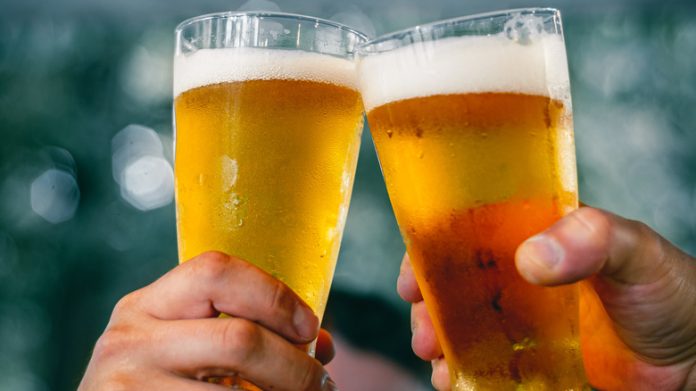A beer shortage could be on the horizon because global warming is damaging the production of hops, a study published in Nature Communications has found.
The crop, which gives beer its distinctive bitter flavour, is ripening 20 days earlier than it did in the mid-1990s as a result of steadily warming temperatures. Harvests are down 0.2 tons per hectare across much of Europe and the level of alpha acids, a key chemical for taste, is down 0.6 per cent.
Climate models and analysis predict that by 2050, there will be up to an 18 per cent reduction in the amount of hops, and a 31 per cent drop in alpha content.
Dr Martin Mozny, first author of the study, told The Telegraph that aromatic hops were the “spice” that determined a pint’s aroma and flavour.
“According to our simulations, there is a risk of more expensive aromatic hops for breweries and a shortage of hops on the market,” he said.
“More raw material will be needed to achieve the same taste and it could limit the production of beers.”
The study looked at hop production across Germany, Czechia and Slovenia, the ancestral homeland of beer, and found it was increasingly an unsuitable climate for hop cultivation.
The areas further south face the biggest threat in coming decades, data show, with northern Europe and the UK poised to become hop-growing hotspots in decades to come.
“Climate change threatens hop production worldwide. In Europe, areas in southern Europe are most at risk, while Hallertau in Germany and Zatec in the Czech Republic are least affected,” Dr Mozny said.
“In general, the more northerly areas, where hops are already grown, will have a competitive advantage over the southern areas.
“UK growers will have a competitive advantage over southern Europe. Specific conditions (mainly soil and climate) will limit the shift of production further north, and overwintering conditions will also be a limit.”
But the shift further north may be necessary in order for production to continue at its current rate. Premium and craft beers are most at risk of the ongoing aromatic hop shortages because of a higher use of the crop.
However, despite dire warnings for European farmers there are steps they can take to protect their harvests, experts say.
Dr Mozny said: “One of the measures is the construction of irrigation systems to stabilise production in times of drought.
“Another option is the appropriate selection and location of hop-growing areas (valley positions with higher water tables, shaded positions), the use of more resistant new hop varieties, growth regulators and cultivation technologies with an emphasis on sustainability.”


